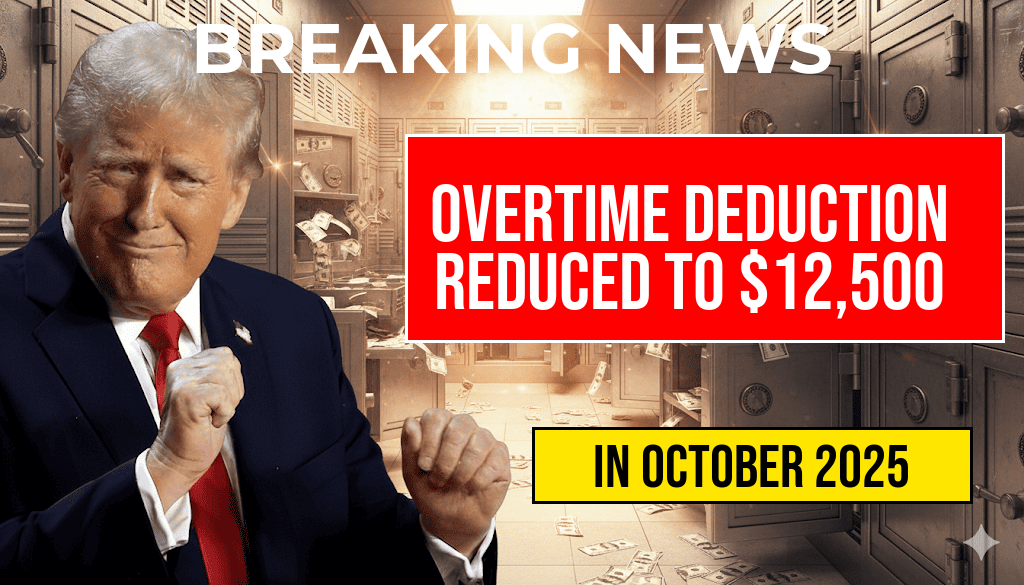The Internal Revenue Service (IRS) has announced a significant update that could benefit countless American consumers and auto enthusiasts: vehicles assembled within the United States now qualify for a tax deduction of up to $10,000 on auto-loan interest payments. This development aims to incentivize domestic manufacturing and purchasing of U.S.-built vehicles, aligning tax policy with broader economic goals. Eligible car buyers could see substantial savings when financing qualifying vehicles, potentially reducing their overall ownership costs. This policy change has sparked considerable interest among consumers, dealers, and industry analysts, prompting a reassessment of vehicle financing strategies and domestic manufacturing support.
Details of the Auto-Loan Interest Deduction Policy
Qualifying Vehicles and Criteria
The IRS has clarified that only vehicles classified as assembled within the United States are eligible for the interest deduction. The criteria focus on the vehicle’s manufacturing origin, requiring that the final assembly occurs at a U.S.-based plant, aligning with the definitions used in the U.S. automobile industry. This includes most mainstream brands such as Ford, General Motors, and Stellantis, provided the vehicles meet the assembly criteria.
Deduction Limits and Qualifications
| Maximum Deduction | Vehicle Assembly Location | Loan Type |
|---|---|---|
| $10,000 | Assembled in U.S. | New or Used Auto Loans |
| $7,500 | Imported Vehicles | Not eligible for this deduction |
The deduction applies to interest paid on auto loans for vehicles that are primarily used for personal purposes. Borrowers must itemize deductions on their federal tax returns, and the deduction is subject to the usual IRS rules regarding mortgage and personal loan interest.
Tax Implications and Limitations
The IRS emphasizes that the $10,000 limit applies to the total interest paid within the tax year for qualifying vehicles. Consumers can claim this deduction if their total auto loan interest exceeds the standard deduction threshold, making it particularly advantageous for those financing more expensive or multiple vehicles. However, the deduction does not extend to lease payments or loans used for commercial purposes.
Industry and Economic Impact
Boost to U.S. Manufacturing
Manufacturers have welcomed the policy shift, viewing it as a strategic move to promote domestic assembly and sales. The auto industry has been under increasing pressure to bolster U.S. manufacturing amid trade tensions and supply chain disruptions. By offering tax incentives for vehicles assembled stateside, policymakers aim to stimulate job creation and strengthen the economic fabric of U.S. auto production centers.
Consumer Perspective
For consumers, the new policy could translate into thousands of dollars in savings over the lifespan of a vehicle loan. This is especially relevant as vehicle prices continue to rise, with many models exceeding $40,000. The ability to deduct interest payments up to $10,000 effectively reduces the cost of financing, encouraging more Americans to consider American-made vehicles. Experts suggest that this change might influence purchasing decisions, shifting demand towards domestically assembled cars and trucks.
Market Dynamics and Future Outlook
Economists and auto industry analysts predict that the policy could accelerate the transition toward U.S.-based manufacturing, fostering competitive advantages for domestic automakers. It may also prompt foreign automakers operating U.S. assembly plants to highlight their local assembly processes more prominently in marketing efforts. As the policy gains traction, industry insiders anticipate increased investment in U.S. manufacturing facilities and supply chains.
Additional Considerations and Resources
Potential buyers should consult with tax professionals to understand how the auto-loan interest deduction interacts with their overall tax situation. It’s also advisable to verify vehicle assembly status through manufacturer disclosures or official registration data. For detailed IRS guidance, visit the IRS Publication 936.
For further insights into the U.S. automobile industry and manufacturing trends, refer to the Wikipedia entry on the U.S. automobile industry.
Industry observers see this policy as a strategic move to align tax incentives with national economic priorities, potentially reshaping the landscape of vehicle financing and manufacturing in the United States.
Frequently Asked Questions
What is the main benefit of the new U.S. auto-loan interest deduction?
The new policy allows consumers to qualify for a deduction of up to ten thousand dollars on auto-loan interest when purchasing U.S.-assembled vehicles.
Which vehicles qualify for the auto-loan interest deduction?
Vehicles that are assembled in the United States qualify for the deduction, encouraging support for domestic manufacturing.
Are there any specific requirements to qualify for the deduction?
Yes, eligible vehicles must be assembled in the U.S. and the auto loan must be used to purchase these vehicles within the applicable tax year.
How does this deduction impact my overall tax savings?
The deduction can reduce your taxable income by up to ten thousand dollars, potentially resulting in significant tax savings depending on your tax bracket.
When does this policy take effect, and how can I claim the deduction?
The policy is effective immediately for qualifying purchases made within the current tax year. To claim the deduction, include the interest paid on your auto loan for a U.S.-assembled vehicle when filing your tax return.







